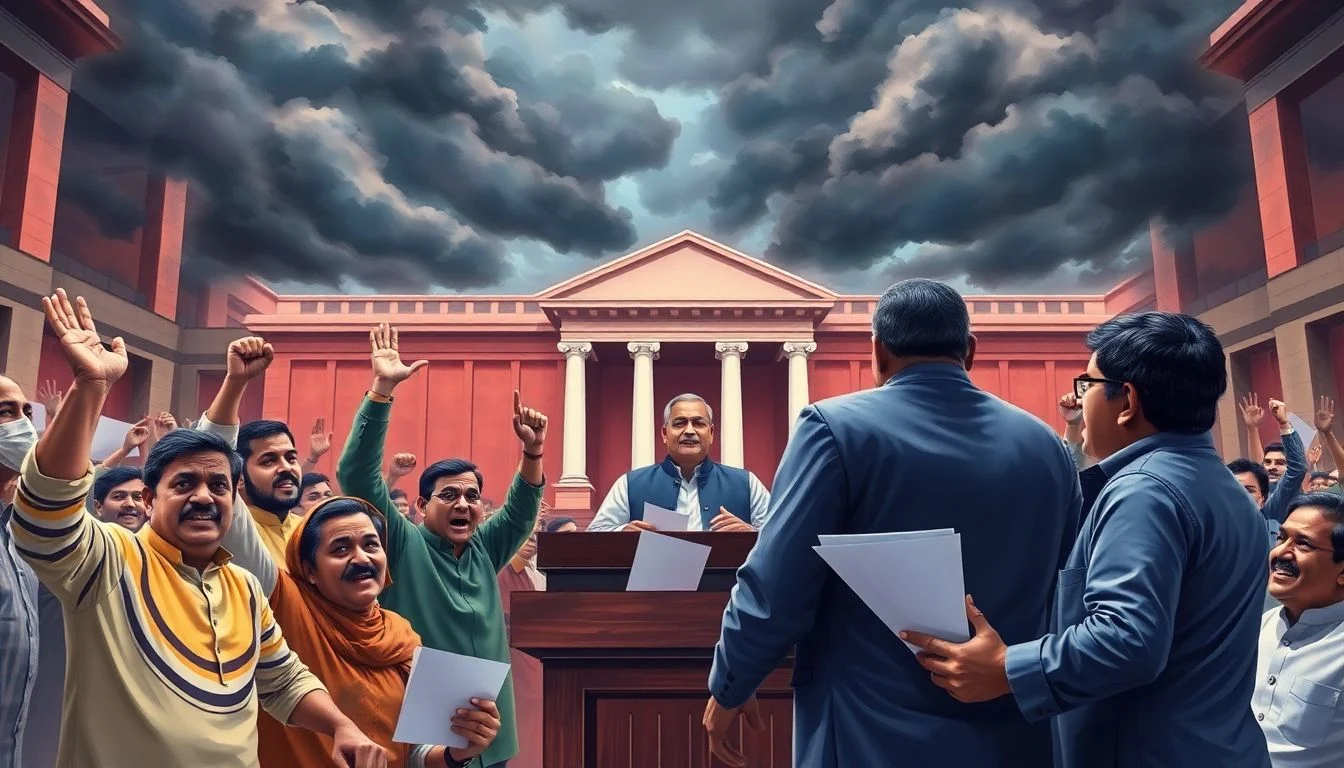Introduction
Recently, Vice President Jagdeep Dhankhar sparked heated debates with his comments about the Supreme Court. His statements surprised many and raised questions about the relationship between the executive and judiciary. Opposition parties quickly responded, criticizing his remarks and warning of threats to judicial independence. This controversy is now a hot topic, highlighting the fragile balance of power in India’s democracy. It’s essential to understand what was said, why it matters, and what it could mean for the country’s future.
Background of Dhankhar’s Remarks on the Supreme Court
Origins of the Statements
Jagdeep Dhankhar made his comments during a public event in late April, 2024. He criticized recent judicial decisions that he called “judicial overreach” and suggested that the courts may be impacting executive functioning. His language carried an undertone that questioned the role and authority of the judiciary. The remarks instantly drew attention in political and legal circles.
Political Climate Leading to the Controversy
The timing is key—just weeks before a major election season. Recent Supreme Court rulings on issues like farmers’ protests, election disputes, and alleged government overreach have been hotly debated. Opposition parties felt the remarks targeted judicial independence, while supporters claimed they were necessary to protect executive powers.
Public and Media Response
Media outlets across India called Dhankhar’s statements “controversial” and “provocative.” Social media exploded with opinions for and against him. Many legal experts argued that criticizing the judiciary like this could harm the rule of law. Polls showed a divided public opinion, with some worried about growing political interference in courts.
Opposition Parties’ Reactions and Criticisms
Major Opposition Parties’ Standpoints
- Indian National Congress: Called Dhankhar’s comments “dangerous” and accused him of undermining judicial independence.
- Trinamool Congress and regional parties: Warned that such statements weaken trust in the courts and threaten democracy.
- Left parties and smaller groups: Emphasized the importance of respecting judicial institutions and warned against politicization.
Common Themes in Opposition Criticism
- The allegations that Dhankhar’s remarks attempt to weaken the judiciary’s autonomy.
- Concerns that such statements can lead to increased political influence on courts.
- Warnings that these actions may undermine the rule of law and destabilize Indian democracy.
Statements from Prominent Opposition Leaders
Many opposition leaders issued strong statements. Rahul Gandhi called Dhankhar’s speech “attacks on our Constitution.” TMC’s leader said, “The judiciary must be independent—no political leader should undermine it.” The tone was clear: they viewed this as a dangerous move.
Implications for Judicial Independence and Democracy
Impact on the Separation of Powers
When high-ranking officials criticize courts openly, it blurs the line between the branches of government. Such actions can erode the judiciary’s independence, making courts less capable of checking executive power. This weakens the system designed to protect citizens’ rights.
Historical Context and Precedents
History shows similar incidents where political leaders questioned courts. For example, in the past, some leaders tried to influence judicial decisions or bypass courts altogether. Those moments kept the debate alive about how much power the judiciary truly has versus the executive.
Expert Opinions on the Issue
Legal scholars warn that this kind of rhetoric can set dangerous precedents. They say it might encourage others to undermine courts’ authority quietly. Political analysts note that if this trend continues, it could weaken India’s democratic foundation and shake public trust in justice.
Government Response and Strategic Positioning
Official Stance on Dhankhar’s Remarks
Dhankhar responded by saying he meant no disrespect to the judiciary. He clarified his comments aimed at accountability and transparency. The government also issued a cautious statement, emphasizing respect for judicial independence, but critics saw it as a strategic move to avoid further controversy.
Political Strategy and Narrative Management
The ruling party is trying to frame this debate around accountability, not confrontation. Leaders argue that the government respects courts but also seeks reforms. On the other hand, opposition parties are accusing the ruling party of trying to weaken judicial authority for political gains.
Recommendations for Maintaining Judicial and Political Stability
To prevent further controversy, leaders should promote healthy dialogue and respect for institutions. It’s vital to separate political problems from judicial matters. Building trust means acknowledging the importance of judicial independence and working together to strengthen democratic norms.
Conclusion
Dhankhar’s remarks on the Supreme Court sparked a fierce political clash. Opposition parties see it as an attack on judicial autonomy, while some argue it’s about accountability. Regardless of the side, the episode highlights a critical issue—how respect for the judiciary is central to India’s democracy. We must prioritize dialogue and uphold the rule of law. Only then can India maintain a healthy balance of power and a strong democracy. The future depends on how well leaders at all levels protect the independence and integrity of judicial institutions.

